Equine Internal Parasites
Take an up-close look at common internal parasites and the damage they can do to your horse. Also learn about parasite resistance and the drugs and management methods that can help control certain worms.
Share
ADVERTISEMENT
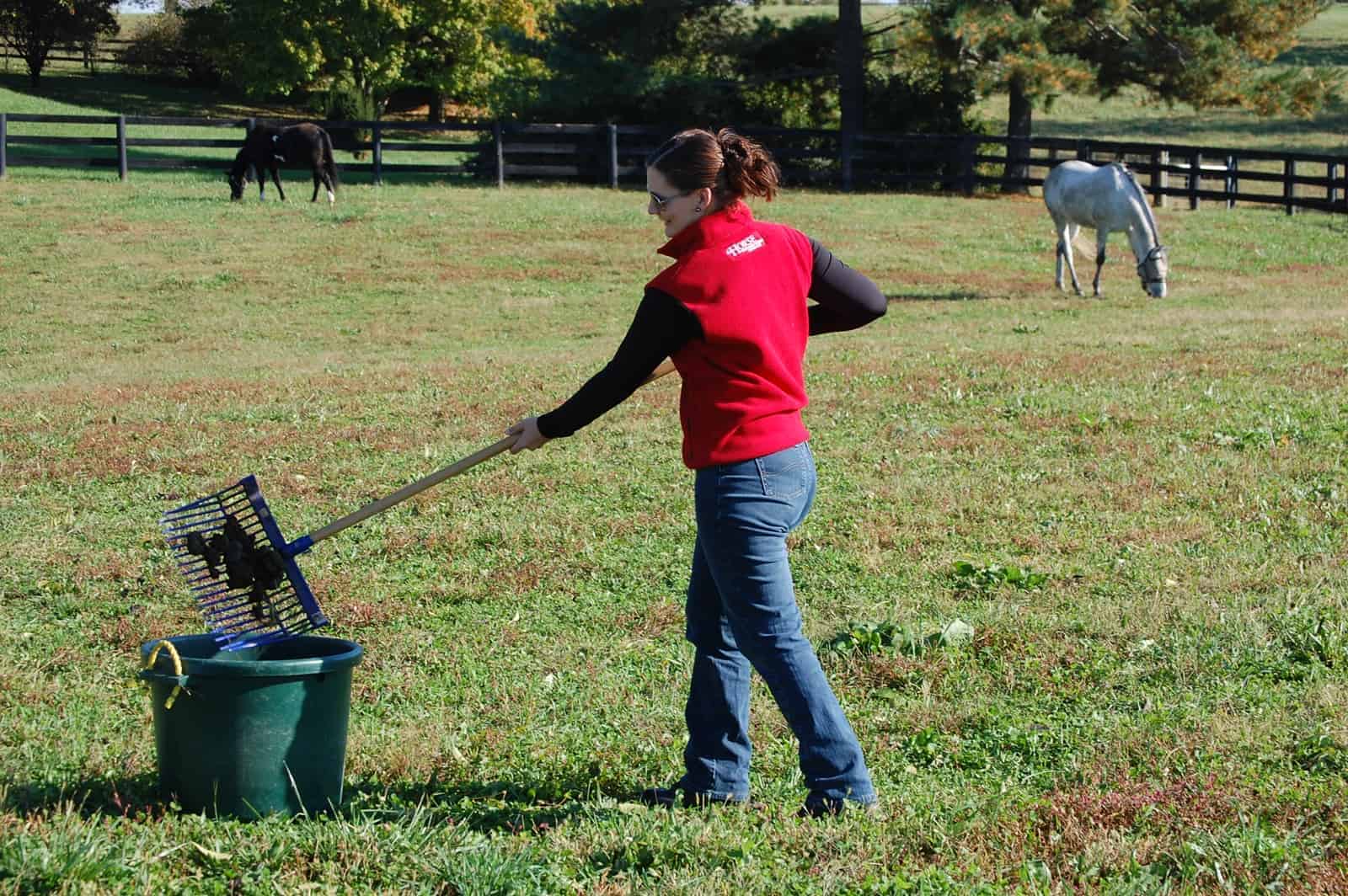
Manure Management for Parasite Control
Good manure management, including picking manure out of pastures and dry lots, is one of the best ways to limit your horse's exposure to internal parasites. | Photo: Alexandra Beckstett, The Horse Managing Editor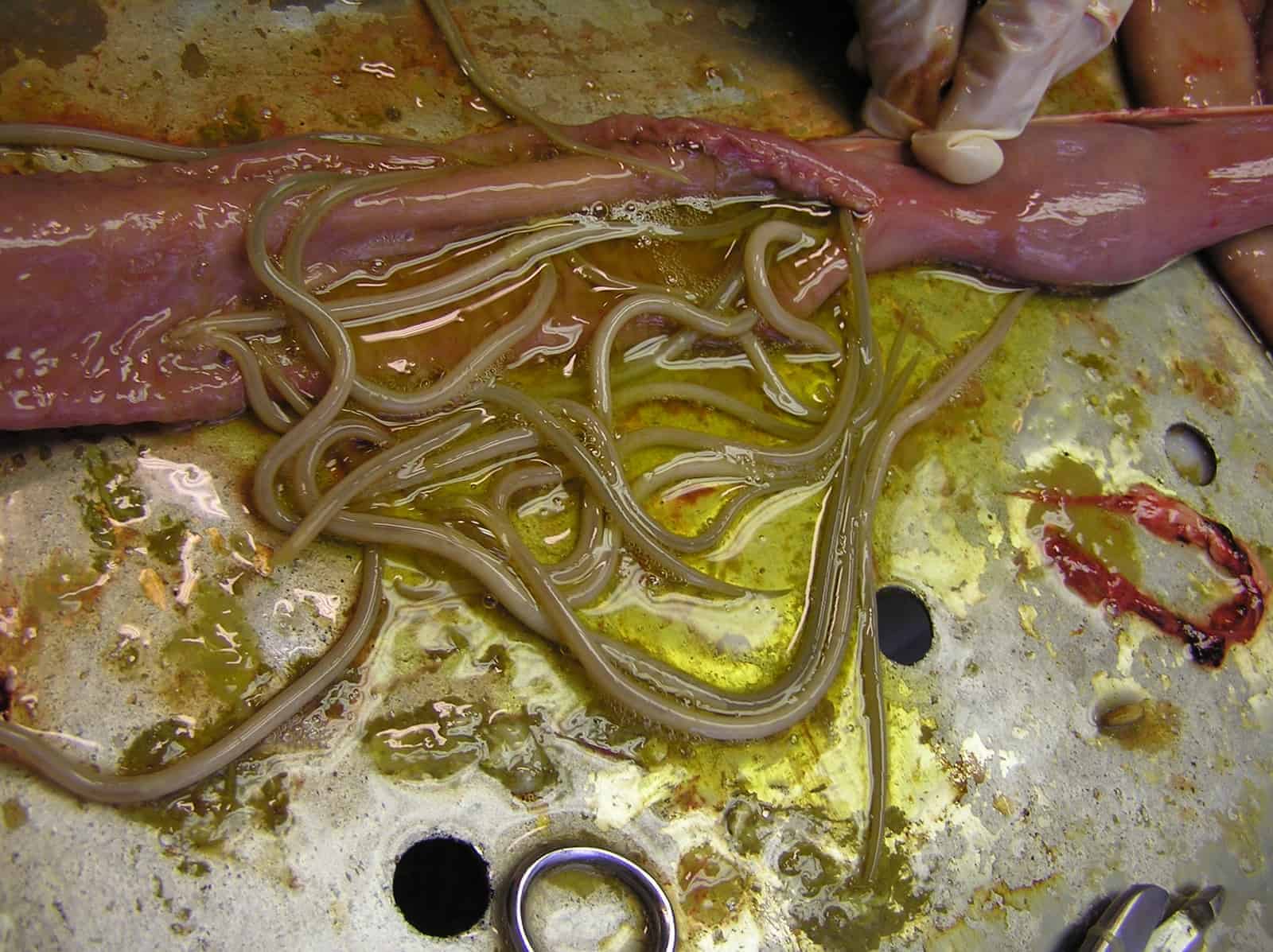
Large Roundworms
The large roundworm, Parascaris equorum, lives in the small intestine and can cause severe colic in foals and weanlings. This parasite has become widely resistant to ivermectin and moxidectin worldwide. | Photo: Martin Krarup Nielsen, DVM, PhD, Dipl. ACVM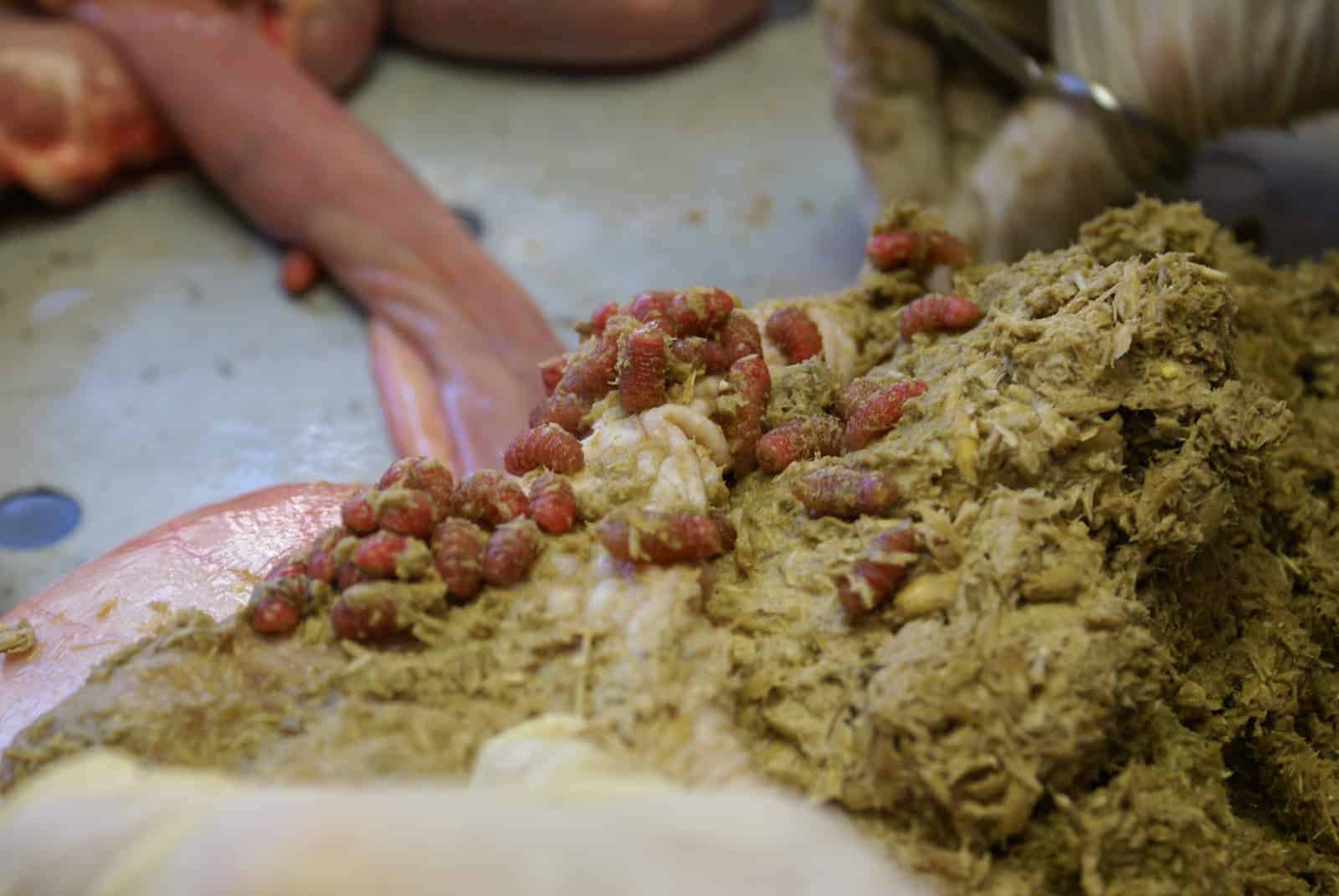
Botfly Larvae
Botfly larvae, Gastrophilus spp., spend the winter months attached to the gastric mucosa. They have not been associated with any specific diseases in the horse. These larvae are sensitive to treatment with moxidectin and ivermectin. | Photo: Martin Krarup Nielsen, DVM, PhD, Dipl. ACVM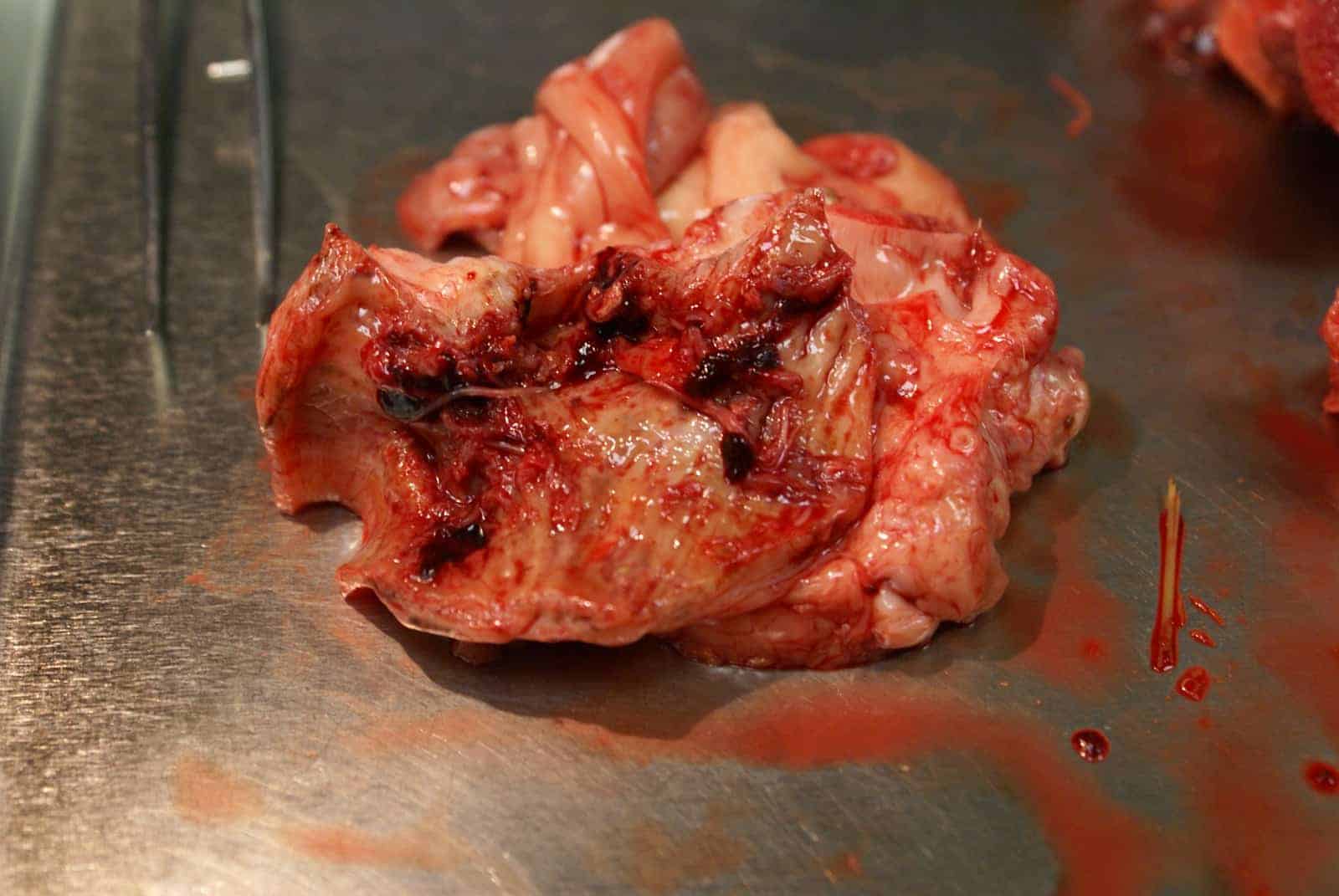
Bloodworms
Larvae of Strongylus vulgaris, the bloodworm, migrate in the mesenteric arteries for about four months before returning to the intestine. Here, they cause inflammation and blood clots that can lead to severe colic. This parasite has not been reported resistant to dewormers and has become rare in managed horse populations. | Photo: Martin Krarup Nielsen, DVM, PhD, Dipl. ACVM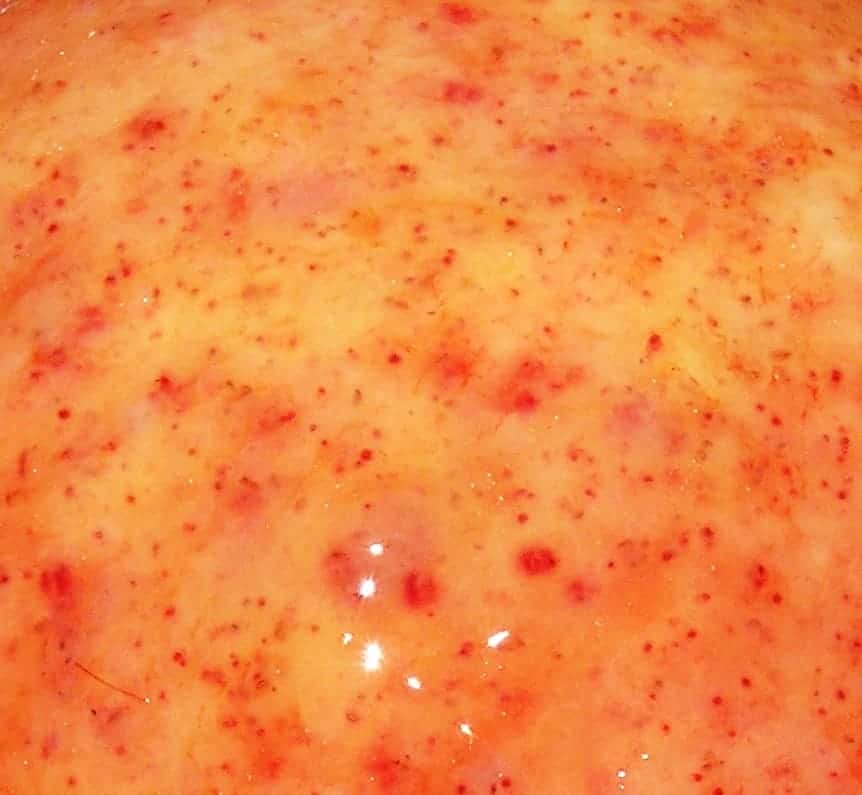
Small Strongyles
Larvae of cyathostomin parasites (small strongyles) encyst in the walls of the large intestine. Each red dot represents an encysted larva. These parasites are present in every horse, and a healthy individual can harbor hundreds of thousands. | Photo: Martin Krarup Nielsen, DVM, PhD, Dipl. ACVM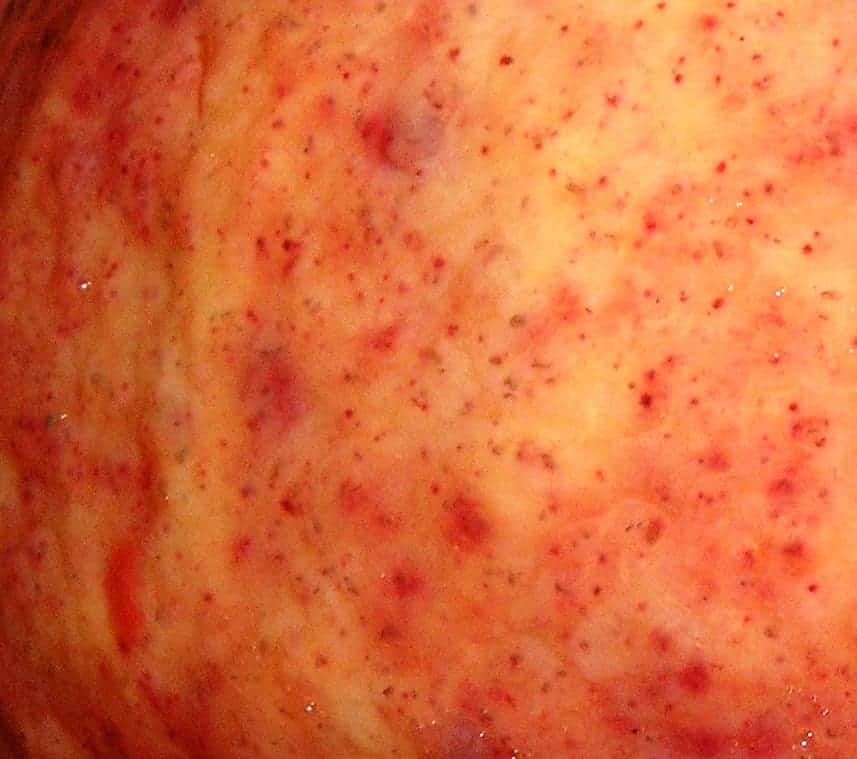
Encysted Larvae
Very few dewormers can kill encysted larvae. Synchronous mass emergence of these in large numbers can cause severe diarrhea in the horse. This happens very rarely in well-managed horses. | Photo: Martin Krarup Nielsen, DVM, PhD, Dipl. ACVM
Encysted in the Cecum
Cyathostomin parasites have been found widely resistant to benzimidazole dewormers across the world. Pyrantel resistance is relatively common as well. It is very important to routinely test for resistance on every farm. | Photo: Martin Krarup Nielsen, DVM, PhD, Dipl. ACVM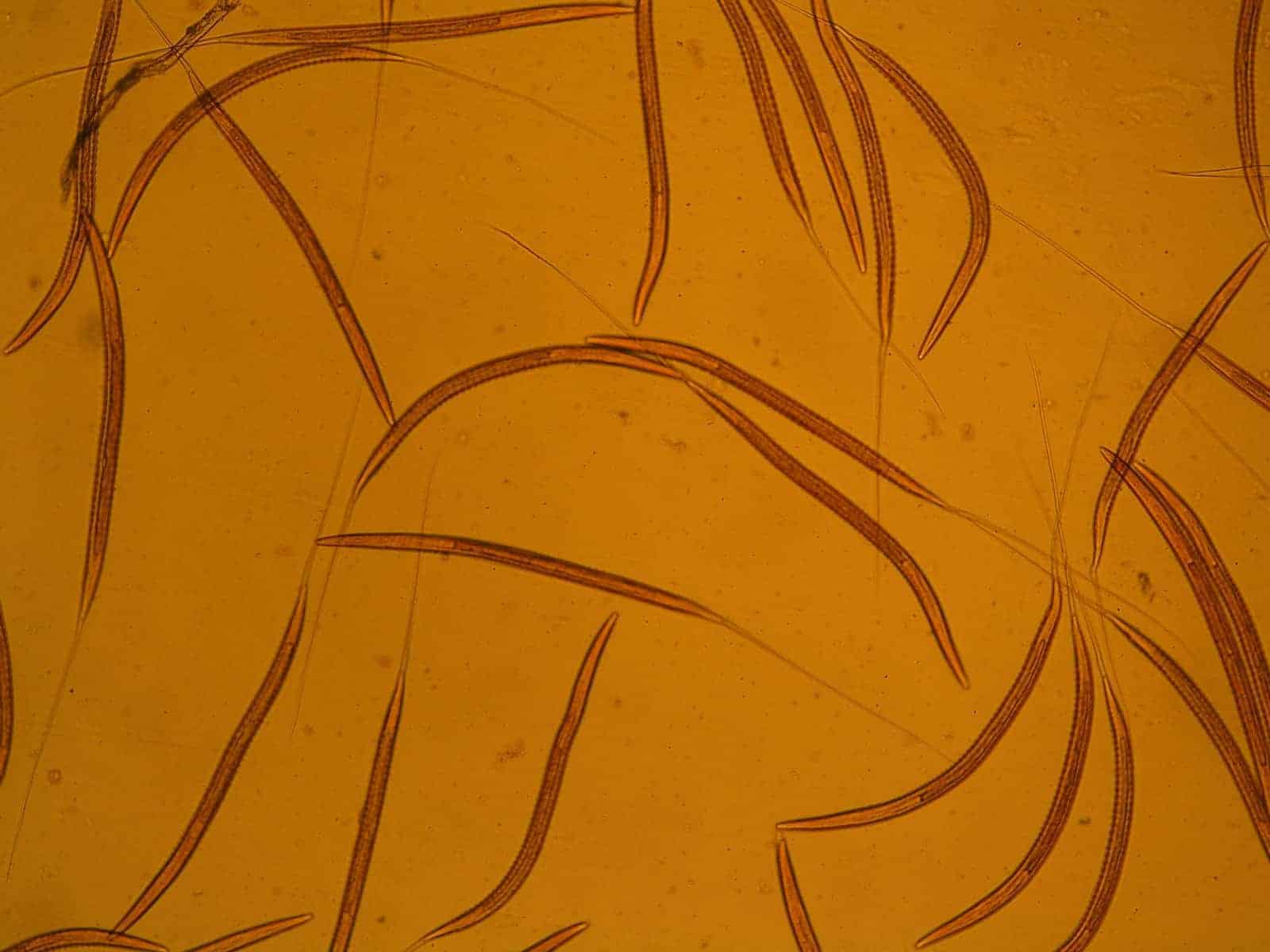
Strongyle Larvae
All strongyle parasites (large and small) develop to the third larval stage on pasture. These larvae migrate onto the grass blades and thereby infect the grazing horse. | Photo: Martin Krarup Nielsen, DVM, PhD, Dipl. ACVM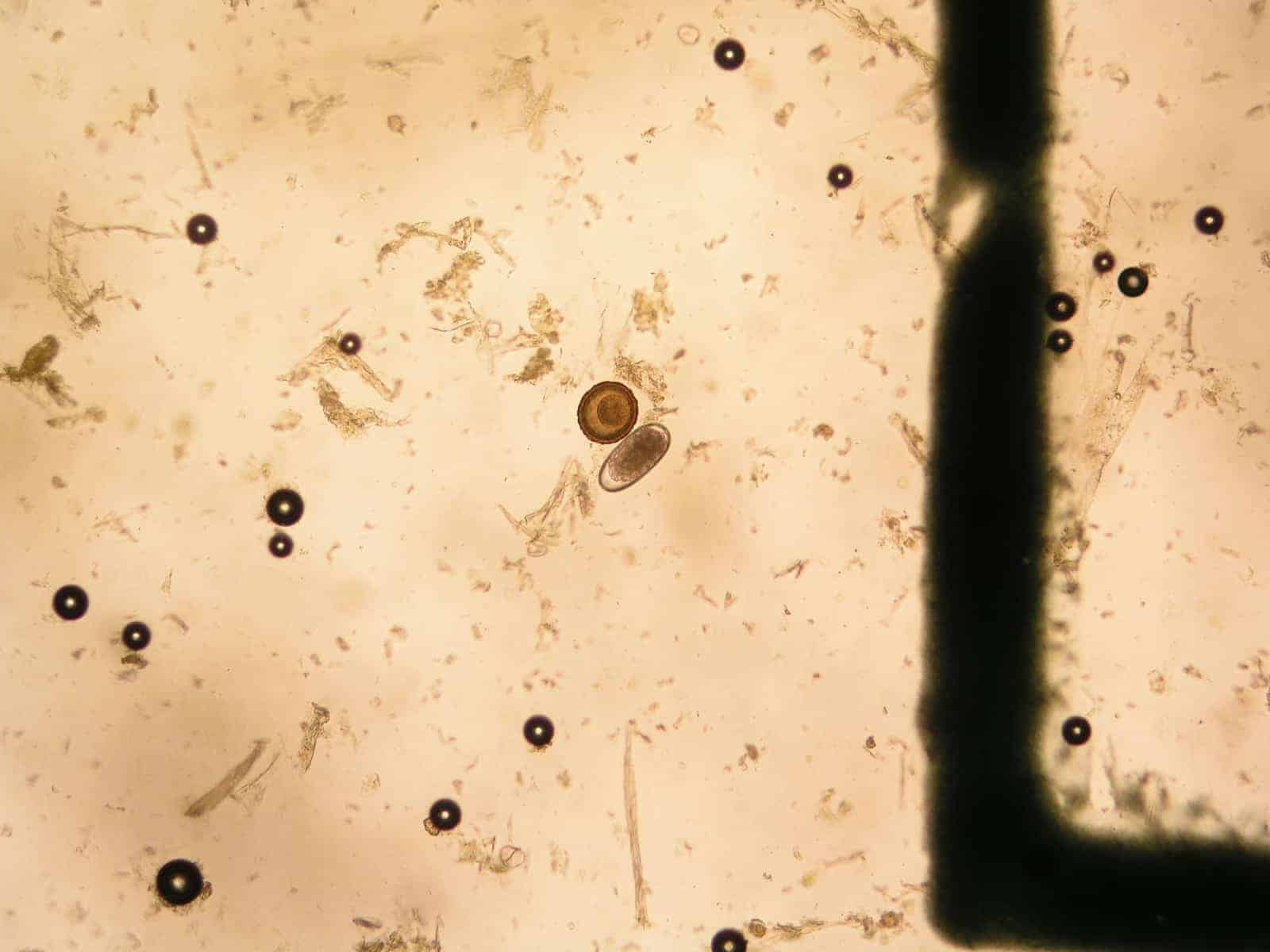
Fecal Egg Counts
A fecal egg count can be used to determine whether the horse is infected with cyathostomins (small strongyles), Parascaris equorum (large roundworms), or both. As some drugs work against strongyles, but not large roundworms and vice versa, it is crucial to know which of these are present before deworming the horse. | Photo: Martin Krarup Nielsen, DVM, PhD, Dipl. ACVM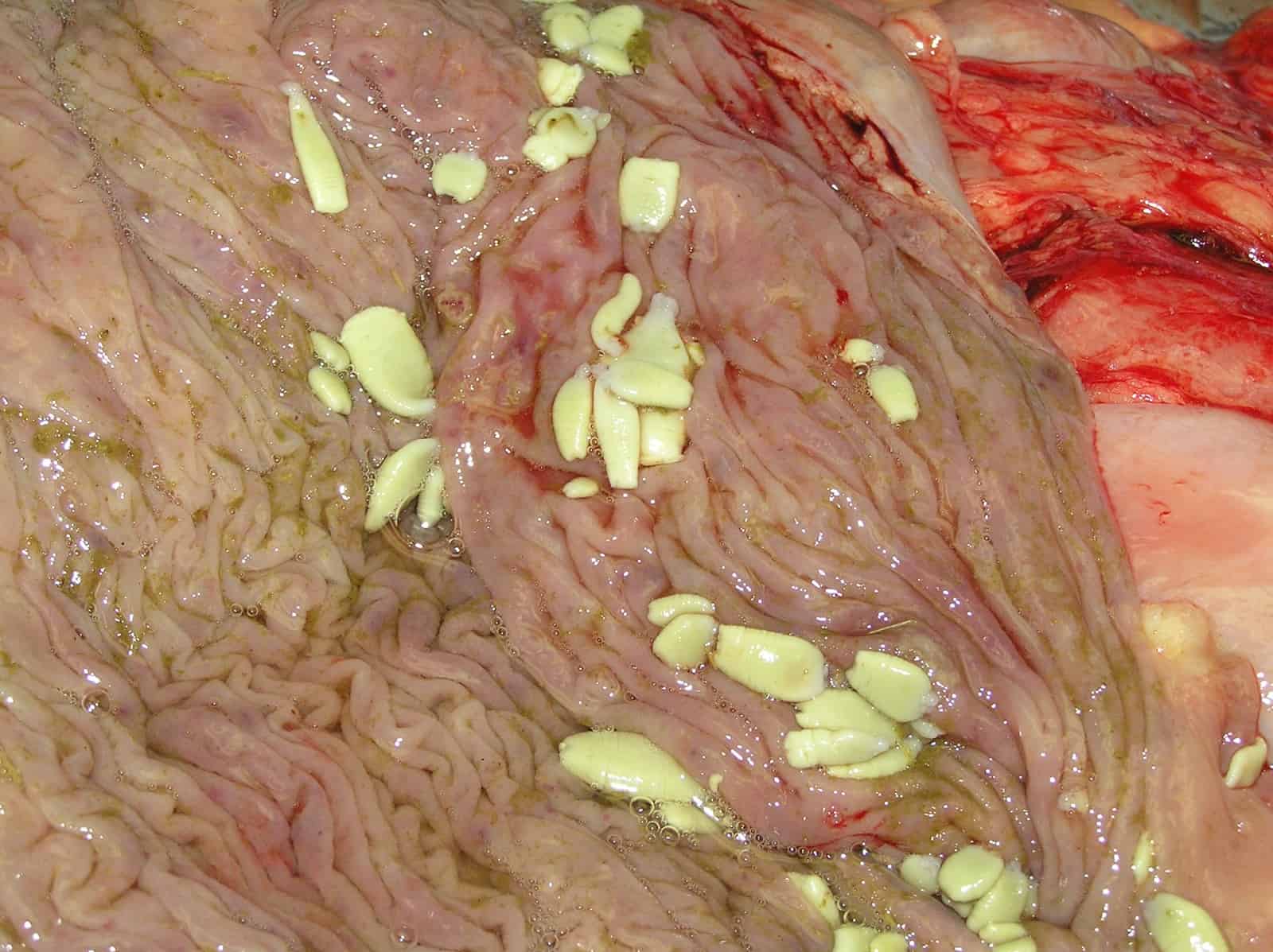
Tapeworms
The tapeworm, Anoplocephala perfoliata, gathers around the junction between the small and the large intestine in the cecum. This parasite is very common and most horses tolerate it well. Large tapeworm burdens can cause colic in the horse. Pyrantel (double dose) and praziquantel are effective drugs for treating tapeworms. | Photo: Martin Krarup Nielsen, DVM, PhD, Dipl. ACVM
Tapeworm Eggs
Tapeworm eggs are detectable in the fecal sample, but reliable detection requires a modified egg counting technique. These eggs are about the size of a strongyle egg but have an irregular shape. A pyriform body can be seen inside the egg. | Photo: Martin Krarup Nielsen, DVM, PhD, Dipl. ACVM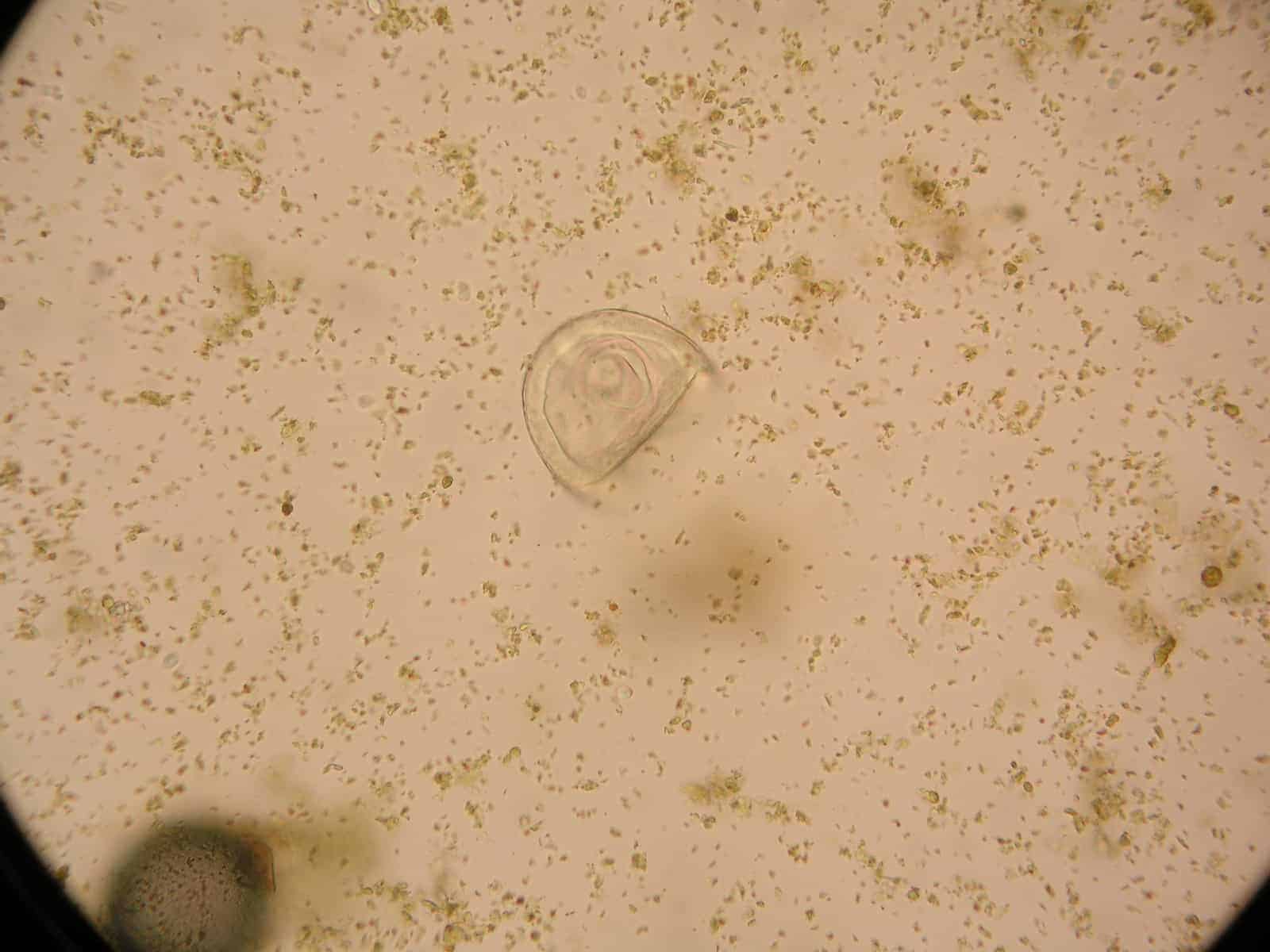
Tapeworm Egg Shape
Tapeworm eggs often have a characteristic D-shape. It is important to diagnose tapeworm infection so appropriate dewormers can be chosen. | Photo: Martin Krarup Nielsen, DVM, PhD, Dipl. ACVM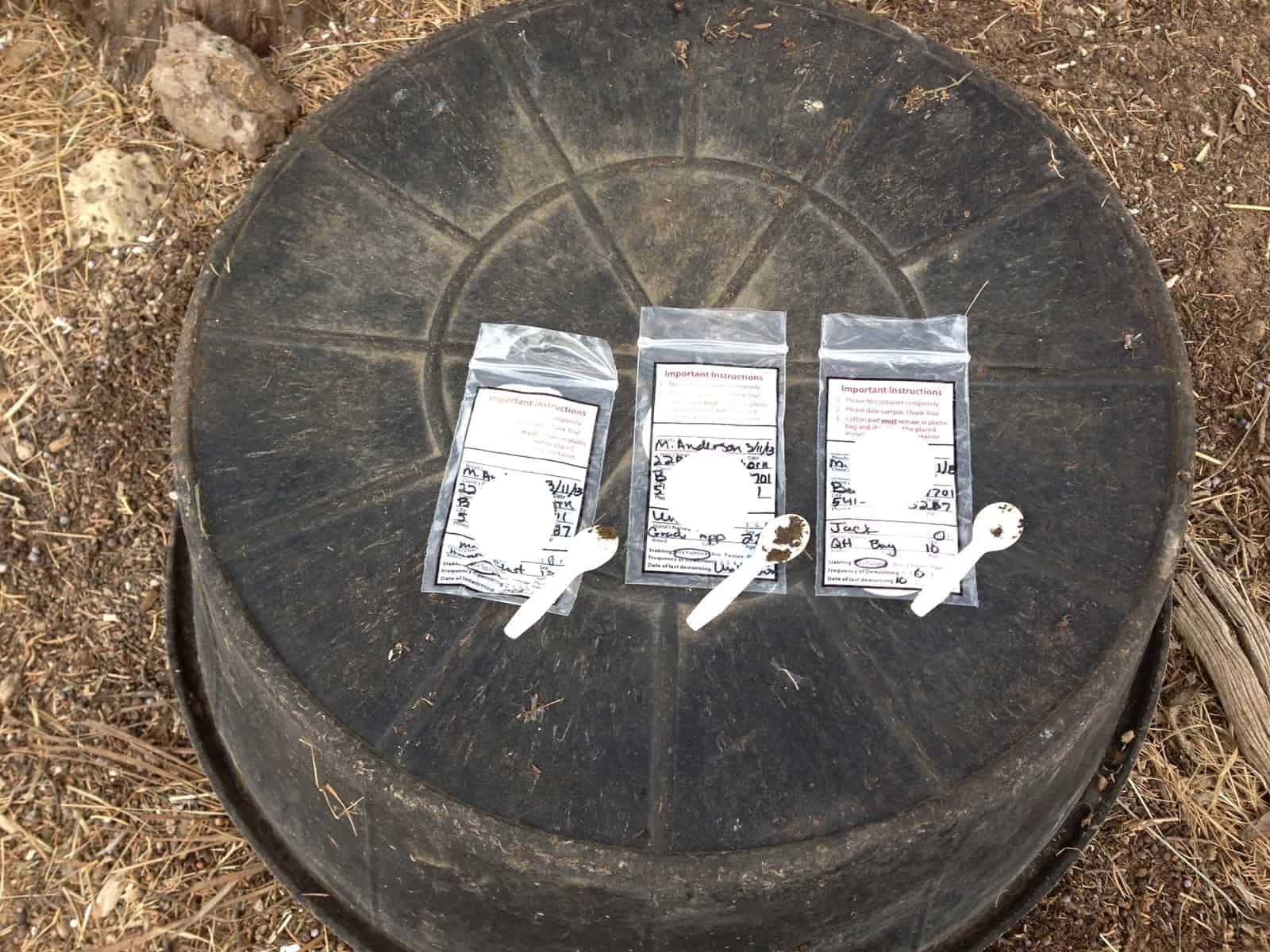
Fecal Test
A McMaster's fecal egg count test can help horse owners and their veterinarians create a targeted deworming program for individual horses and farms. These fresh manure samples are ready for the laboratory. | Photo: Michelle N. Anderson, TheHorse.com Digital Managing Editor
Share

The Horse: Your Guide To Equine Health Care is an equine publication providing the latest news and information on the health, care, welfare, and management of all equids.
Related Articles
Stay on top of the most recent Horse Health news with

















